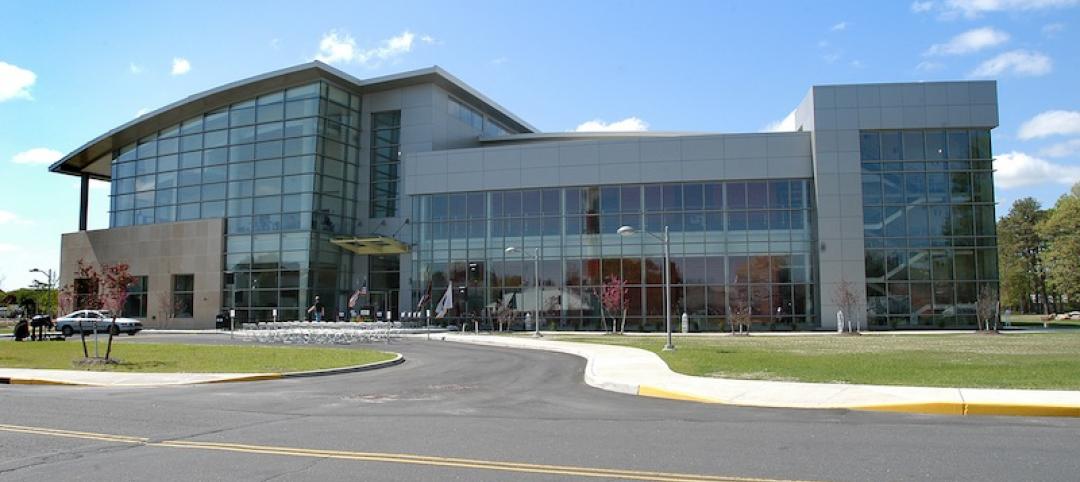The Softwood Lumber Board (SLB) and USDA Forest Service (USDA) recently launched a competition to demonstrate the role of mass timber in decarbonizing the built environment.
The competition will award $2 million to multiple project teams that design and construct mass timber buildings in the U.S. that are repeatable and scalable. The award program will also share lessons learned and research findings, including carbon footprint life cycle assessment results, to help support future mass timber projects.
Eligible building types include commercial, institutional, industrial, educational, mixed-use, and affordable multifamily housing developments. Applicants can submit proposals beginning in early 2022 and winners will be announced in late spring/early summer of that year.
Timber sourced for the project must be managed sustainably, contributing to forest and watershed health. Several approaches can be used to ensure sustainable supply of wood products, including federal, state, and local regulations, third-party certifications, best management practices, and an emerging ASTM standard.
Related Stories
| Mar 14, 2013
Possible tax code changes prompt action from various industries, including construction
With Congress potentially tackling tax reform, businesses, trade groups and others are jockeying to get their voices heard.
| Mar 14, 2013
Concrete Polishing Association of America releases new standards
The Concrete Polishing Association of America(CPAA) Standards Committee, which reflects a cross-section of the concrete polishing industry, has created terminology to define the products and processes used to produce insitu polished concrete.
| Mar 14, 2013
World Green Building Council: Green buildings help mitigate real estate risk
Green buildings can offer benefits to a wide array of stakeholders throughout their life cycle, according to a report released by the World Green Building Council.
| Mar 14, 2013
Sustainability index aims to evaluate REITs on the greenness of their properties
FTSE Group, the National Association of Real Estate Investment Trusts, and the U.S. Green Building Council are working on a sustainability index that measures the portfolios of real estate investment trusts to provide transparency about LEED certification and Energy Star ratings.
| Mar 6, 2013
OSHA: Employers must post injury and illness summaries
The Occupational Safety and Health Administration is reminding employers to post OSHA Form 300A, which lists a summary of the total number of job-related injuries and illnesses that occurred during 2012.
| Mar 6, 2013
Study provides guidance to states on linking utility efficiency programs with energy codes
As states increasingly look to utilities to play an active role in supporting building energy codes, a new report from a coalition of energy efficiency advocates, has been issued to provide guidance for how state regulatory commissions and energy offices can best develop and evaluate such efforts.
| Mar 6, 2013
Triple-pane windows, heat pumps part of New York’s plan to meet 2050 emissions goal
Renovations providing better insulation, triple-paned windows, heat pumps and other techniques that minimize heat loss and save on energy use for residential and commercial buildings are key to New York City’s goal of reducing its carbon emissions by 90% by 2050.
| Mar 6, 2013
EPA asks for feedback on Energy Star criteria on tubular daylighting devices and skylights
The U.S. Environmental Protection Agency (EPA) has requested feedback from stakeholders about draft two of the Energy Star tubular daylighting devices (TDD) and revised skylight criteria.
| Mar 6, 2013
AAMA moves to streamline windows, doors certification extensions
The American Architectural Manufacturers Association (AAMA) says it will update an interim procedural guide that will provide a documented, optional process to extend current, unexpired AAMA product certification.
| Feb 26, 2013
Tax incentive database for reflective roofs available
The Roof Coatings Manufacturers Association (RCMA) and the Database of State Incentives for Renewables & Efficiency (DSIRE) created a database of current information on rebates and tax credits for installing reflective roofs.









